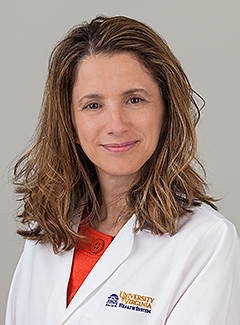We are streaming this live via Zoom. Presentations qualify for CME credit, and the attendance code is shared during the presentation. To obtain your CME credit, you will need to use the CAMS system.
Cannabis Update Post Legalization
 Nassima Ait-Daoud Tiouririne, MD, University of Virginia
Nassima Ait-Daoud Tiouririne, MD, University of Virginia
Professor, Medical Director of Ambulatory Psychiatry
Program Director, Addiction Medicine Fellowship
Associate Program Director, General Psychiatry Residency
Director of the Center for Leading Edge Addiction Research
Learning Objectives:
- Understand the complexities of cannabis and its mechanism of action
- Discuss medical use versus Cannabis Use Disorder
- Discuss the implication of legalization of cannabis on other drug use
The educational objective for the Addiction Medicine Grand Rounds is to provide health professionals with updates on addiction topics with the goals of increasing knowledge, competence, and patient care. The Addiction Medicine Lecture series is held monthly on a Thursday from 12 to 1 p.m. Be sure to log into your CME account and complete the evaluation to receive credit.
All faculty, CME Planning Committee members, and the CME office reviewer have disclosed that they have no financial relationships with commercial interests that would constitute a conflict of interest concerning this CME activity.
This activity has been planned and implemented in accordance with the accreditation requirements and policies of the Accreditation Council for Continuing Medical Education (ACCME) through the joint providership of The University of Arizona College of Medicine - Tucson and Southern Arizona VA Health Care System. The University of Arizona College of Medicine - Tucson is accredited by the ACCME to provide continuing medical education for physicians.
The University of Arizona College of Medicine - Tucson designates this live activity for a maximum of 1 AMA PRA Category 1 Credit(s)™. Physicians should claim only the credit commensurate with the extent of their participation in the activity.
Persons with a disability may request a reasonable accommodation, such as a sign language interpreter, by contacting us at 520-874-4082. Requests should be made as early as possible to allow time to arrange the accommodation.

